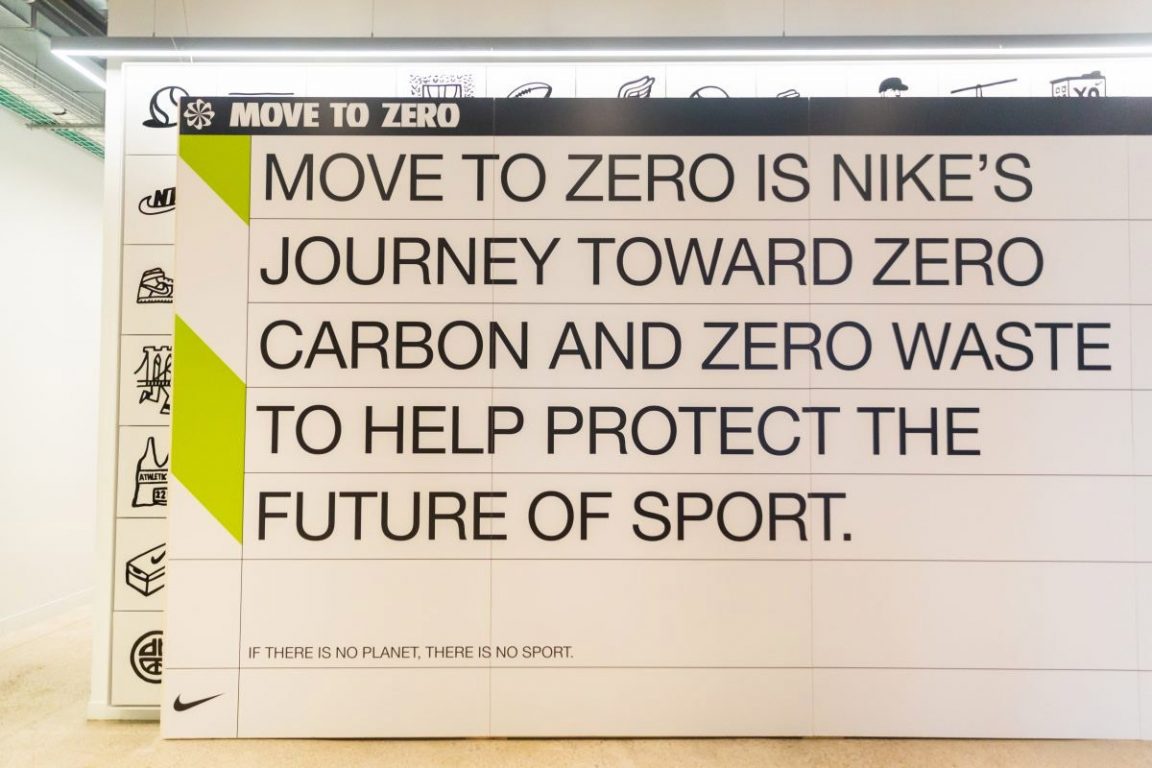Why brand purpose matters
Brand purpose is a term that has been bandied around a lot in recent months. It's not surprising really, we’re facing a global climate and ecological emergency and some brands are just waking up to that. There is so much focus on 'doing the right thing' in terms of social and environmental issues, but the message here isn't about being seen to be doing the right thing, it's about wanting to make a difference and taking action.
In a recent report conducted by Edelman, 56% of people said that they believe too many brands are using societal issues as a marketing ploy.
One of the top five trust ranking factors in a customer’s buying decision also identified that participants wanted to be able to trust the brand to do what is right. With only one in three people trusting most of the brands they buy or use regularly.
So, can you really afford to have a purpose that is purely about making a profit and satisfying the shareholders?
Some businesses are founded on a cause or an aspirational vision to change the world, disrupting markets with innovation or bold attempts to challenge conventional thinking, but others discover their purpose along that journey. Either way, brand purpose needs to be authentic. It’s such an important factor for consumers when they’re choosing a product or service, so jumping on the bandwagon by adopting a purpose that consumers can identify with is unlikely to inspire brand loyalty.
Defining your key messages and making a genuine commitment to positive change are important steps towards building brand purpose.
But what is brand purpose?
Described by Marketing Week, as embedding values into your brand's DNA, in practice, it sounds like a pretty simple concept. In reality, it's giving a greater reason for a brand to exist other than just to make a profit.
So, do you need it? Simply put, yes! In today's consumer-driven marketplace, businesses cannot survive in the long-term by lowering prices or cutting corners in the supply chain and throwing ethics out the window. Even the most price-savvy customers are starting to question the perceived value of their purchases.
Brand purpose doesn't just help put you in front of the right consumers either; it ensures you retain them. The Edelman report highlighted that 67% of people agreed that a good reputation may get them to try a product, but unless they come to trust the company behind it, they'll soon stop buying it. 53% of participants also agreed that every brand has a responsibility to get involved with at least one social issue that did not directly impact its business.
Defining purpose also helps brands motivate employees. Staff are the natural cheerleaders of a business, and if they don't believe in company goals, how can they promote the message effectively?
It's hard to ignore the data surrounding the importance of brand purpose but telling an authentic story and convincing customers that marketing efforts are not solely for the benefit of profit can be challenging.
Is brand purpose a marketing ploy?
In the wake of recent government announcements such as the 'Climate Emergency' and its target of net-zero emissions by 2050, it's often difficult for consumers to see past a brand's marketing message without questioning the motive behind it.
As mentioned above, participants in the Edelman survey said too many brands use current issues as a marketing ploy. This process is also referred to as ‘trustwashing’. An example of this was recently highlighted by Edelman's global brand community chair, Amanda Glasgow.
“Gillette, with its We Believe advertisement that takes on toxic masculinity, is one example of a brand that is trust-washing”, she explained.
"It is provocative content, no doubt, and it got people talking," she said. "But in order to figure out what Gillette is actually doing to help solve that problem, you have to dig really deeply into their website to find out they are supporting some non-profits that help men be their best selves. It is not clearly attached to that message."
Similar examples have been echoed many times on social media with different brands facing backlash for inauthenticity, and simply not putting their words into action.
But where is the line between authenticity and trustwashing?
Customers and brand trust
Customers are more aware of social and environmental issues than ever before. However, it's not just awareness that is the driving force behind a change in consumer demand — it's the need to feel they can also make an impact with their buying choices.
Brands don’t need to be created on a specific cause to ensure people believe their brand purpose. But not backing up words with action can have detrimental effects on customer loyalty and trust.
Every stage of a business journey and its operations need to be considered. These essential elements make up the soul of the company, and respectively this plays a crucial role in strengthening the overall message.
One industry facing scrutiny for a fragmented brand purpose is the fashion sector. Known to many as ‘fast fashion’ this market has been built on bulk manufacturing and low costs. While some brands are taking steps to change this, others are introducing conscious collections to ensure they tick that box — otherwise known as 'greenwashing'.
Whether we're talking about 'greenwashing' or 'trustwashing', the vital takeaway from this practice is that customers are becoming more aware of it.
The notion that brands need to make a positive environmental, social and economic impact is more than a passing fad. Ever more conscious consumers are looking for brands to take the opportunity to make a difference that enables them to make better purchasing decisions. In turn, this improved trust and buying experience will see businesses reap the rewards.
How to use influence to build consumer trust
Word of mouth and recommendation is nothing new in the marketing world. It’s often described as one of the best ways to attract new customers, as your current audience are already singing your praises. However, in recent years, this landscape has changed dramatically due to the popularity of social media.
One area that is growing rapidly is influencer marketing.
You could argue that most people are influencers in some way. We buy things, we tell people about it, and sometimes we share on social. In the influencer world, most lifestyle aspects are shared online, and because of this, some people have built up quite a following. Influencers cover most industries from fashion, technology, business and travel, and give customers a relatable person behind the recommendation.
From the Edelman report, 63% of people aged 18–34 said they trust what influencers say much more than what brands say about themselves. Plus, over half of those people have bought a new product based on their endorsement.
This data shows that using peer marketing can build trust, plus it offers an effective channel alongside social, paid and owned exposure. The Edelman results also suggested that once a customer has seen your message repeated across three different channels, the trust in that message strengthens.
The evolution of brand trust and purpose
It comes as no surprise that, like a business, brand purpose is an evolving element in your overall message. Brands often make the mistake of remaining rigid in the market, especially if tried and tested marketing methods have worked for many years.
Defining a purpose that allows you to be adaptive to industry changes also shows customers that you are conscious of emerging issues and can innovate effectively.
Brand purpose isn’t just a good thing for your customers; it’s great for business! Keith Weed, CMO of Unilever recently stated that some of the highest performing brands in their portfolio are purpose-driven. While the Havas Media Group published figures showing meaningful brands outperform the stock market by 120%.
Attracting the best talent is another benefit of brand propose. For example, according to a survey by Deloitte, millennials would prioritise a sense of purpose around people rather than growth or profit maximisation. By making a positive impact in-house, you are installing a sense of value in employees that are also potential customers.
Who’s getting it right?
With brands making bigger promises and larger statements, can consumers really trust these messages? Some companies are showcasing how to translate brand purpose into meaningful actions, for example:









